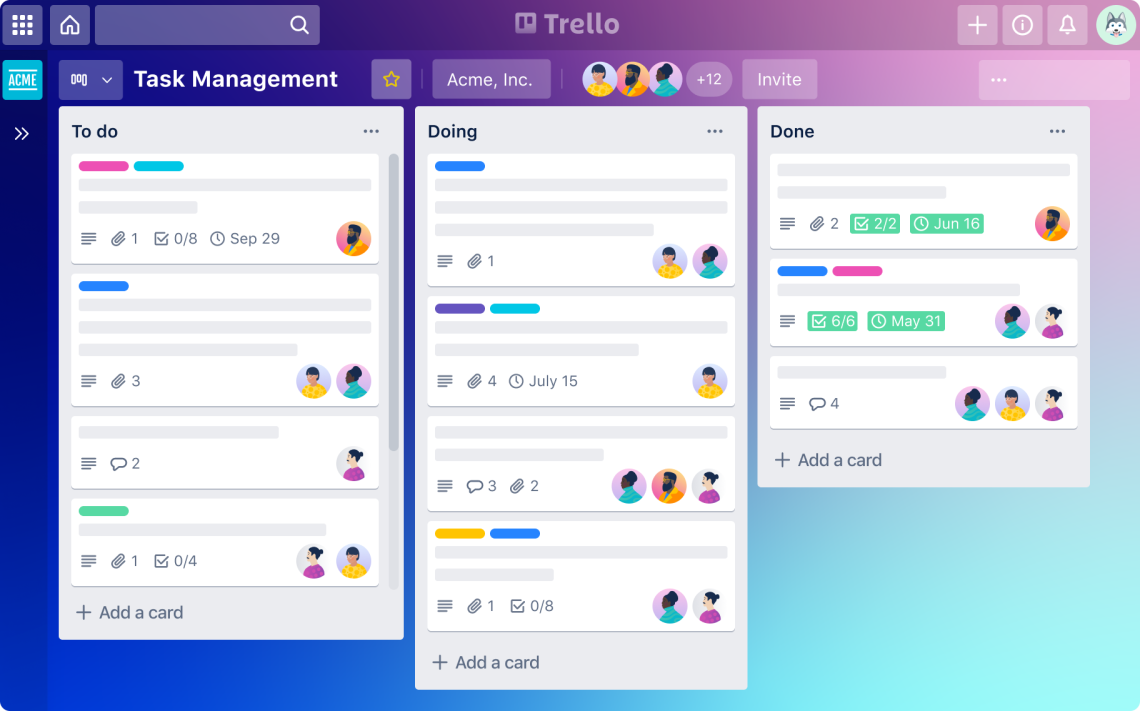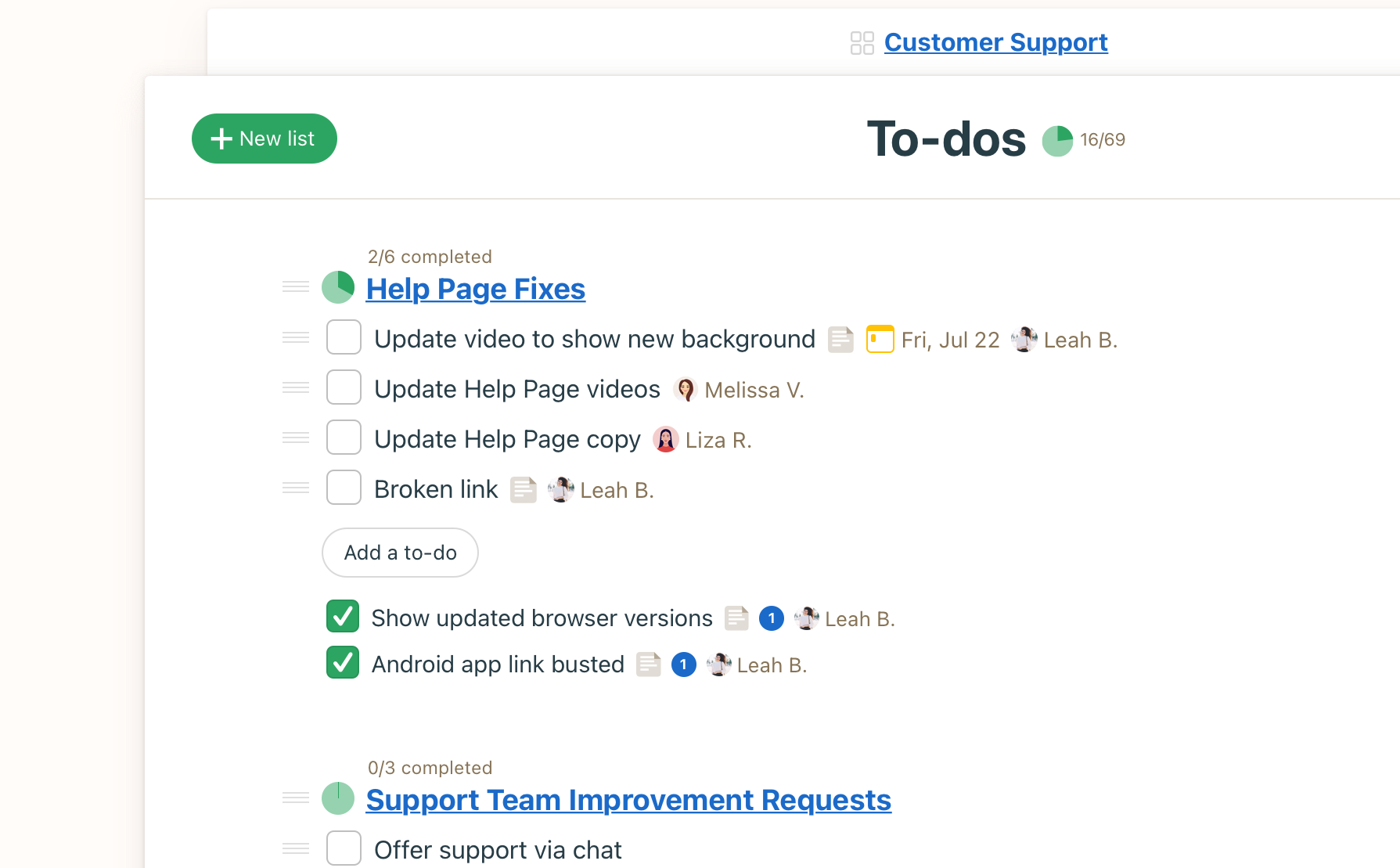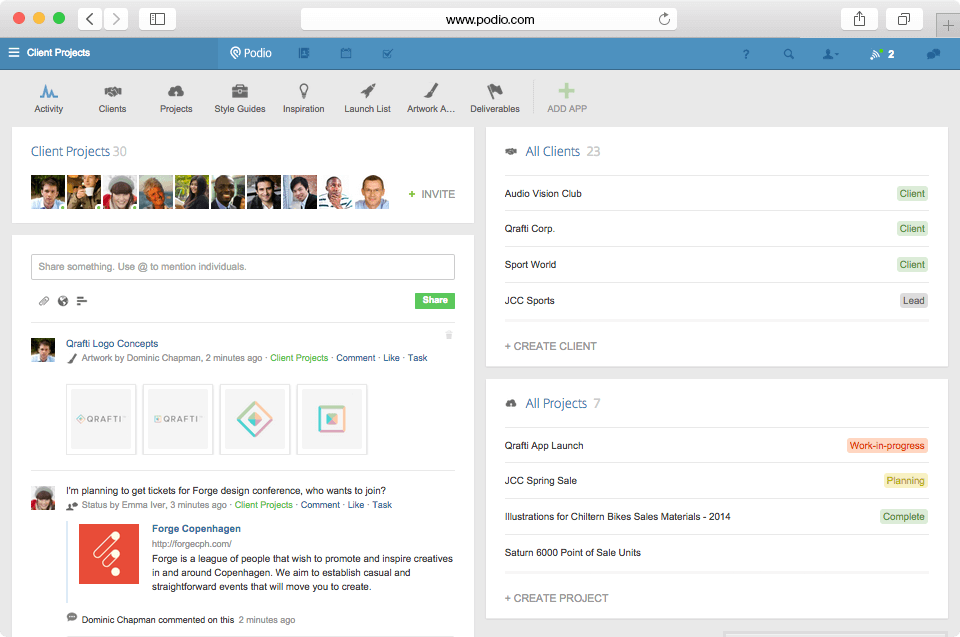From Chaos to Control: Mastering Project Management in Agency Settings
Whether you’re assigning a team to launch a new agency product or handling marketing campaigns for your clients, much of what agency teams do can be seen through the lens of project management. Strong project management methods can help you define and implement efforts, keep work within deadline and budget, and continuously improve your offerings.
Discover 18 actional tips for offering white-label solutions to clients. Get the “How to white label” guide for FREE today!
If you want to enhance your ability to resell digital marketing assets or create and manage new marketing campaigns for clients, consider implementing project management for agencies. Discover some tips and resources for doing so below.
Why is project management important for agencies?
Marketing campaigns can be seen as projects. Each comes with its own budget, goals, challenges, and limitations. Juggling all those components—often for numerous campaigns and clients—can be difficult if you haven’t honed the skills for managing them.
Effective project management can help you overcome those challenges and can even support positive outcomes such as boosted agency revenue as you’re able to streamline processes, get more done with less, and constantly improve deliverables.
Some common benefits of project management that can help you recession-proof your agency include:
- Improved efficiency. Project management methodologies focus on the efficient use of resources so teams can complete work by deadlines, even with constrained timelines.
- Enhanced client satisfaction. Clients tend to be happier when you implement strong project management methods because they improve communication and ensure deliverables are high-quality, on time, and within budget.
- Increased profitability. Project management is often associated with cost-savings, which can drive up profits.
Project management styles and methods
Agency project management might lean on one or more existing project management methods. Test various approaches to find what works for your teams and clients, starting with a few favorites described below.
Waterfall
With the waterfall approach, teams divide projects into phases and complete them linearly. Work on each phase begins only once the preceding phase is complete, creating a cascading waterfall of work through the project timeline.
| Pros of the waterfall approach | Cons of the waterfall approach |
|
|
Waterfall is a good approach if you want to create repeatable processes you can use with large marketing endeavors. Consider it when you build and launch new sites or manage content creation and publication.
Agile
Agile project management takes an iterative approach that breaks each project down into small stages that can be completed quickly. It also builds in feedback loops and flexibility, supporting change within the process as the project develops.
| Pros of the agile approach | Cons of the agile approach |
|
|
Consider agile project management methods if you are bootstrapping an agency, working on boosting startup agency revenue, or working closely with an established client on a marketing effort that is new to both of you.
Scrum
Scrum is a specific agile framework that helps you put the project management philosophy into use in a more structured way. The framework includes values and principles that align project management efforts and involves scrum teams, including product owners and scrum masters.
| Pros of the scrum approach | Cons of the scrum approach |
|
|
Consider implementing scrum for complex marketing projects that require fast-paced but carefully managed teams of skilled professionals, such as website development.
Project management tools for agencies
However you decide to implement project management for agencies, technical tools can help you support team and client communication, manage efforts, and increase positive outcomes when selling services online.
More than half of project management professionals say they face a challenge in collaborating effectively with others (Exploding Topics). Project management tools and white label resources that can enhance collaboration are important.
The functionality and ease of use of a project management tool are top considerations for most users (Techopedia). When choosing tools for your teams, look at whether they have the features to support success with projects. You can start your research with some of the options below.
Trello

Image source: Trello
Trello is a popular Kanban-style project management tool that lets you create a visual approach to project management. Create and assign project boards, cards, and tasks, and manage to-do lists and documents in the same view.
Trello can work well for small and midsize teams with specific workflows. It tends to get a bit messy for teams that scale beyond that.
Asana
Asana is a comprehensive project and task management tool with plenty of customizations. You can build automated workflows that ensure project tasks are pushed to the next phase and responsible party seamlessly, and integrated email and notification options keep everyone informed.
Making Asana work for you can take time and require building those custom workflows, though. This is a better option for agencies that can devote resources to managing Asana while Asana helps them manage projects.
Basecamp

Image source: Basecamp
Basecamp is a collaboration tool that helps you break projects into a variety of to-do lists, which can then be viewed based on project or task type, due dates, or who they are assigned to.
Basecamp is a simple but powerful tool that can help you manage disparate teams, especially if your marketing projects rely on outside resources like freelancers.
Other project management tools
Some other tools you can use to bring project and task management to your digital marketing strategy include:
- To-doist
- Click-up
- Jira
- Wrike
- Smartsheet
- Moxie
- Podio

Image source: Podio
Project management processes for different types of agencies
Project management for marketing agencies doesn't look the same across the board, and it's important to adapt these methodologies and tools to meet your unique agency strategy. For example, the project management needs for a team working to develop a presence as a Google Workplace reseller differ from the needs of a team creating video content for clients.
Here are some quick tips for developing the right project management process for various agency types:
- Marketing agencies. Consider the scale of your content needs and whether you need a project approach that supports editorial tasks. Waterfall works well here, and you can customize the approach with digital tools to automate parts of the process.
- Digital ad agencies. Because ad management can be an ongoing task, consider developing a project management workflow for building new campaigns before passing them on to regular business process workflows.
- Design agencies. Choose project management tools that support your team visually, such as Gantt charts and kanban cards.
- Software development agencies. Since agile and scrum methods are created with technical dev teams in mind, start with an existing approach and build in customizations for your team from there.
Project management tips for agencies
Whatever approach you take to project management for your agency, consider implementing some of the best practices below to get the most out of your investment:
- Communicate clearly. Avoid using project management terms that clients won’t understand, and be transparent about how you complete work for them. While you don’t need to dig deep into details about white label vs. private label for clients, it can be helpful to walk them through your processes so they understand how you manage projects and what their role is.
- Set realistic goals. Review data and results from earlier projects so you can make accurate predictions about budgets, completion deadlines, and what you can provide.
- Manage client expectations. Under promise (within reason) and overdeliver. Be upfront with clients about where challenges might occur and offer proactive plans for dealing with them.
- Use good collaboration tools. Leverage project management, task management, and communication tools—Slack, Microsoft Teams, and even Vendasta’s own suite of tools can help you collaborate more effectively with agency staff, partners, freelancers, and clients.
- Allocate resources intelligently. Use resources in a way that makes the most sense. Don’t task your in-house team to struggle under the weight of resource development if it makes more sense to partner with outside vendors, for example. Check out our guide to white labeling for help in adding resources without scaling your staff.
[adrotate banner="111"]

